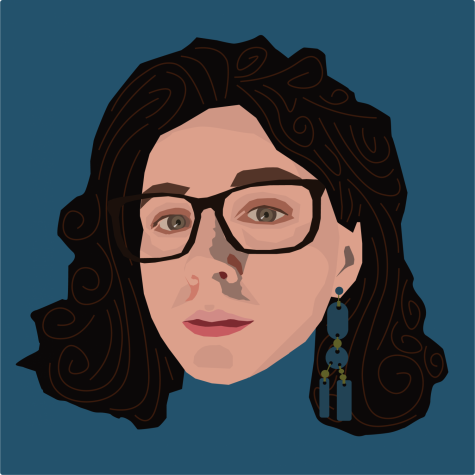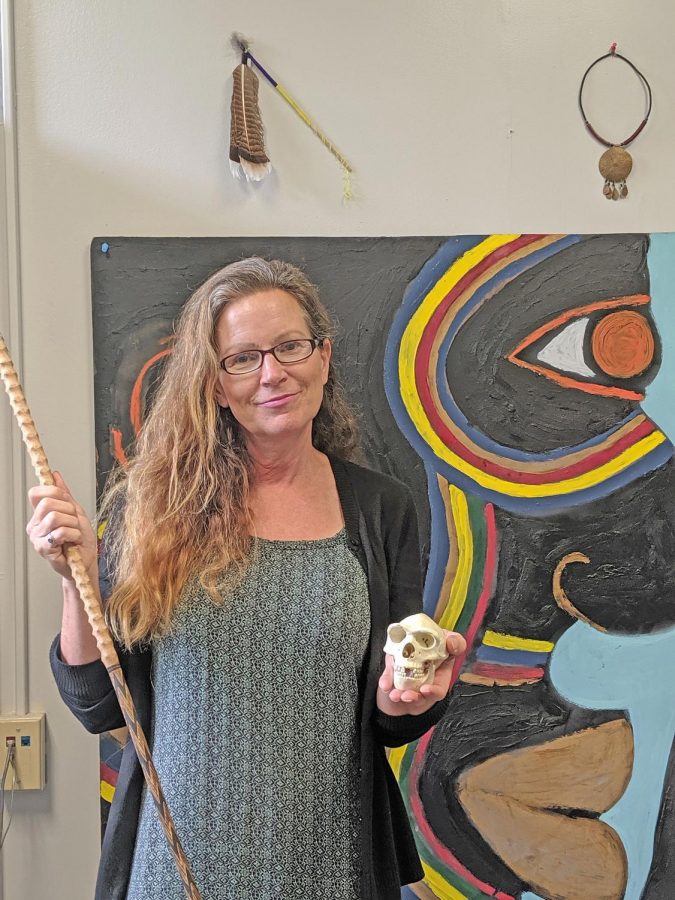Round the planet Janet!
Janet Bennion
Dr. Janet Bennion, professor of Sociology and Anthropology, sat down with Basement Medicine to discuss her research and her passions.
What is unique about you?
I grew up in Utah, and I grew up in a Mormon community. I’m no longer orthodox, and haven’t been for some time, but I grew up in a very unique community and that actually influenced my field of study. You know, at first I wanted to be a cattle rancher, to get a degree in cattle ranching. But then I got a degree in journalism and I worked in DC for awhile.
But then I realized I love anthropology and so I was trying to come up with a subject and I realized, “Hey, there are some interesting offshoot fundamentalist polygamists out there that no one has ever studied. And I speak their language, right? Because I’m Orthodox. I was at the time. I’m an active member of the church. And so I went and visited these groups in Montana and I was the first ethnographer to ever do so.”
Wow. And they let you in?
To this day there hasn’t been anyone [else] who’s been able to do it. When I went there, I was pregnant. I had long hair, and I was conservatively dressed. It was easy for me to gain a rapport with these rather patriarchal polygynous– you know, where one man is married to several wives– people. I wasn’t threatening. And I also come from a lot of big Mormon names and so they thought, “Oh, she’s cool. She can be trusted.” And I lived on and off with them over the space of three years with my children. I got some really good ethnography done. I’ve written five books on that topic.
Recently I’ve fallen in with the research of a different sort. Polyamory. This is something that is obviously less patriarchal. It’s more affirming to women and queer individuals. Especially those who are transgender or bisexual. Females are very much attracted to this. It gets them more options, and women seem to find more empowerment. Cisgendered females, especially.
What have you been studying?
So I started to study last year the Paris polyamory group. I lived on and off with them in various forms. I was trying to juggle that while also starting my new career here at Johnson. It was a busy, busy year and it’s going to continue to be busy because I’m going to go back to Paris for continued research. But this first, initial study was just kind of hanging out at poly meetups, introducing myself as a researcher, but also I’m a practicing polyamorous person. And so I thought that that would be great as kind of an auto-ethnographic perspective.
What is the difference between polyamory and polygyny?
[Both involve] multiple loves. But with polygyny polygamy, it’s one man having many wives. It doesn’t allow for one woman to have several husbands. Polyamory is more open to choice. So, it doesn’t matter if you’re cisgendered, male or female, you can have as many loves as you want or you could be bisexual. I have a good friend who is likewise. She has a male partner, a primary male partner, but she has a trans female partner as well. It seems to work well with people who have an inclination or a knack for juggling many loves.
It seems like it’s a lot of time management.
It’s complicated, yes. Then you have your metamores.
Metamores?
A metamore is your lover’s love. You meet these people and you introduce yourself and hopefully you get over jealousies, and you find that maybe you have some things in common. You hopefully become friends.
Have you ever come across something in your studies that just totally surprised you?
I have taken students to distant lands and one land that I really love is Kenya. I’ve gone on six different school trips with students and my own children over the scope of 15 years. In Kenya, I met this guy, Simon. We were on a safari walk towards a group of wildebeest, and I was talking. I was young at the time. I was talking too much, thinking that I knew everything and he said, “Listen. Don’t talk so much. By listening you will find answers.”
And so the secret, to me, to good ethnography and good humanity is to listen to people we don’t understand and have differences with and they’ll tell us who they are, but we never shut up. So that’s one of the epic learning experiences for me.
Anything else that surprised you?
My first gig was at University of California Santa Cruz, a very open, liberal place and I was still very Orthodox. They wanted me to teach a class on sexuality.
And by God the students taught me. They taught me through their stories about the realities and complexities of sexuality. I was just going purely textbook because I was a brand new, 28 year old PhD. They taught me, and students continue to teach me about the human condition. That’s what I like about teaching.
Did that worldview help shape the way you learned about the realities of the world?
Yeah. I think being from a small town like a lot of folks here really shaped me. Being centered in a very strong, structured, patriarchal religion of course shaped me. But in spite of that patriarchy and structure, my own family taught me in a left-of-center way. My father was a New Deal Democrat. He was the one that shaped me the most at the ranch and on the farm. We were very much open to communalism and sharing. Even the Mormon church itself used to be socialist, of course until the 1960s when everything politically shifted. So I was raised with the Democratic Socialist ideal. It wasn’t so important that you were Republican or Democrat in that small farm town, so I don’t think I’ve changed my ethics all that much.
So you liked growing up where you did?
My upbringing was fabulous. Small town in the desert, cattle town, great friends, enormous experiences, hard work on the ranch. Yes, [I had] a very strong religion that shaped me. But then I went to school and to college at 17, and I realized there’s other ways to look at the world and that there are other types of communities out there. And I was amazed and I haven’t stopped learning about that: the diversity of the other. I’m amazed and enthralled with every human being that I meet. So how could I stay in that small town and that conservative mindspace? I can’t. I have to expand. I have to live and breathe and be aware of people in Africa, in Burlington, even in Vermont. They’re all interesting.
What’s your favorite meal of all time?
You know, I teach ethnic cuisine in a new class here. I can’t possibly answer that, but I can give you some top favorites. I love apple mangoes in June in Kenya, eaten with coconut rice and tafi fish. I also love Thai food. Tom ka with its rich coconut and pepper, basil, and unique lemongrass aroma. I love Mexican food. I love anything taco with fresca salsa. Oh, I also make kickass pies and my soups are famous.
Favorite pie to make? I know that’s probably like choosing a favorite child.
Hmm. Rhubarb blueberry. Instead of strawberry, it’s blueberry. Try that with a little bit of maple. Or what about amazing apple pie, but you also put in some slices of banana for natural sweetener, kind of a bonding agent so it’s not so runny. And those are tricky: making a crust with butter and a little bit of lard, but true lard that you get from an organic farm.
What do you want your legacy to be?
I want my students to dissolve their ethnocentrism and embrace cultural diversity. I want them to be able to find careers in any field that utilizes this understanding of the importance of diversity and behavioral analysis. My legacy is that they’re succeeding in life and that they are open minded, and that they’re not biased, and that they then go into politics and teach others through the public policy of how to embrace people who are different from them through policies about transgender individuals, gay marriage. I want them to open up avenues to dispel hatred towards ethnic groups. Through public policy, I want them to go into business and expand their understanding of others, through providing people with products and services that meet the needs of people. I want them to go into education and help improve the classroom and get rid of those ridiculous standardized tests.
I also hope my legacy is my research. I work hard on my research about really understanding a very different form of loving marriage. Plural marriage through poly love is very different.

Senior, Journalism & Creative Writing
Grew up in Atkinson, NH
Fall 2018
Along with traditional journalism, I enjoy writing satire and fun feature...






